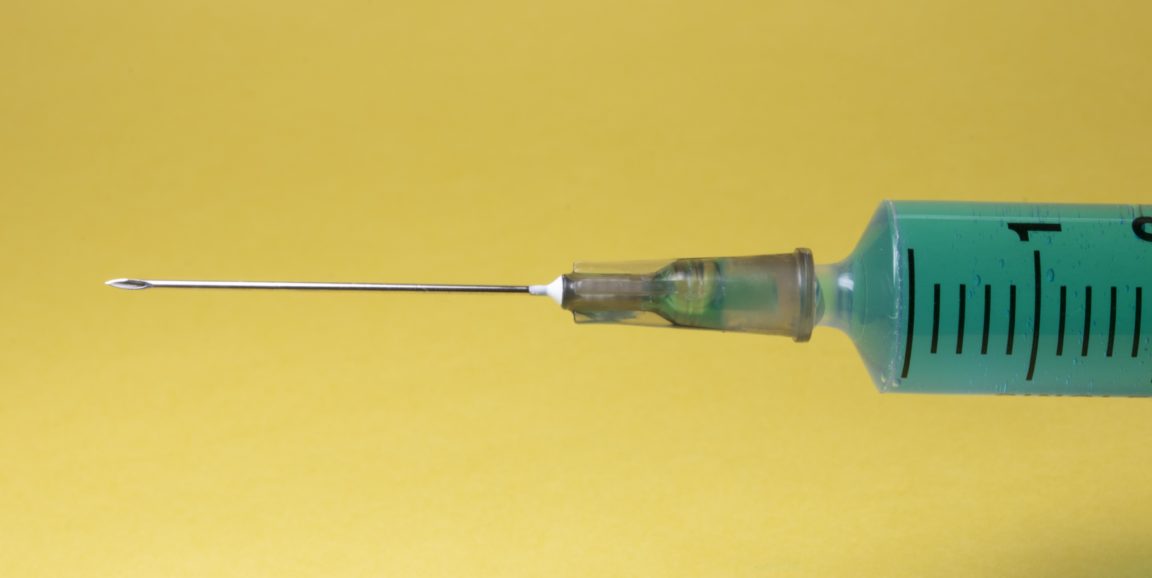"Do you know what ingredients are in vaccines?" a man demanded of anyone wearing a white coat, recording us with his phone. "Can you even name three?"
It sounded reasonable, to ask doctors and trainees to describe the contents of a vaccine. Most familiar to me as a medical student is the flu shot -- a type of vaccine. I've administered dozens of flu shots. But there are different types of flu vaccines every year -- trivalent vs. quadrivalent, inhaled vs. injected -- and each is produced with different techniques (inactivated vaccine, recombinant vaccine, live attenuated), leading to different ingredient lists. And that's just flu vaccines.
"Each vaccine is different, but they all contain some pieces of purified virus protein," I started to say, unsure whether it was worse to assume whether he knew a lot or not much at all.
"What does that even mean, purified protein?" he retorted. "You just don't want to answer the question."
Donning white coats is a privilege, and it carries with it significant responsibility. Lined up outside a hearing in Sacramento on California's SB-276, a bill that would tighten the rules on exemptions for vaccine requirements, I felt proud to endorse evidence-based medicine. But I also felt more than a little uneasy.
We stood conspicuously in our white coats -- fledgling medical students along with veteran doctors -- waiting to share testimony on the integral role vaccines play in public health. That role is so essential that we believe no personal belief should exempt a child. But we were surrounded by hundreds of people who vehemently disagreed.
In 2015, California passed a related bill, SB-277, to prevent unvaccinated children from attending public schools unless they have a medical exemption form signed by a physician. The bill was highly controversial, leading state Sen. Richard Pan, MD, the bill's author and a pediatrician, to receive death threats.
The new bill was designed to fix a loophole in the original law. If passed, medical exemptions would require approval by the local public health authority, even after being signed by a doctor. Currently, parents can obtain a "medical exemption" by filling out a form online and paying a small fee to a handful of enterprising doctors. If the new bill passes, it will become much more difficult to obtain an exemption.
People from across California -- of all ages, skin colors, income levels, and education levels -- traveled to Sacramento in April to voice their opposition to the new bill. The hallway outside the Senate chambers was stifling; the AC was no match for the throngs of people. The temperature rose to well over 80 as we all stood for nearly two hours, waiting to express our diverging perspectives on vaccines. The buzz of background conversation was punctuated by chanting and even yelling.
After speaking with some of the parents who were demonstrating, I began to see their actions as entirely rational, given the narrative they espouse. They know that vaccines have irreparably harmed their children. They know that vaccines are responsible for rising rates of autism. And now California's government is forcibly injecting poison into the state's children. Who wouldn't be outraged? I was heartbroken to see their complete distrust of the medical community, a community I am just joining. Meanwhile, the notion of restricting their rights made my stomach turn.
But even more unsettling is the threat this war on vaccines poses to hard-fought gains to public health. One physician I spoke to lamented that he saw his first case of measles last week, after more than a decade as an ED physician. There hasn't been a case of polio that originated in the US in 40 years.
Our memory may be short, but we need only look beyond our borders to be reminded why vaccines rank among the greatest medical advancements in the human history. Infectious diseases continue to ravage the globe: tuberculosis and HIV kill about 1 million people a year, while malaria takes an additional 400,000 lives. But it has become relatively rare for infectious diseases to kill in our own backyards.
Are vaccines perfect? No. Some people can't get them for legitimate medical reasons, and they aren't effective for everyone. They do have adverse events. But those adverse events are one in a million. And there is no evidence linking vaccines to autism, according to many studies on hundreds of thousands of children. Most importantly, for children born in the last 20 years, vaccines will prevent 21 million hospitalizations and 732,000 deaths.
I hope we won't have to return to pre-vaccine rates of infectious diseases to remember why we started immunizing in the first place.
Neil Rens is a third-year medical student at Stanford University who studied health economics and policy in the Netherlands through a Fulbright grant.
Photo by HeungSoon




